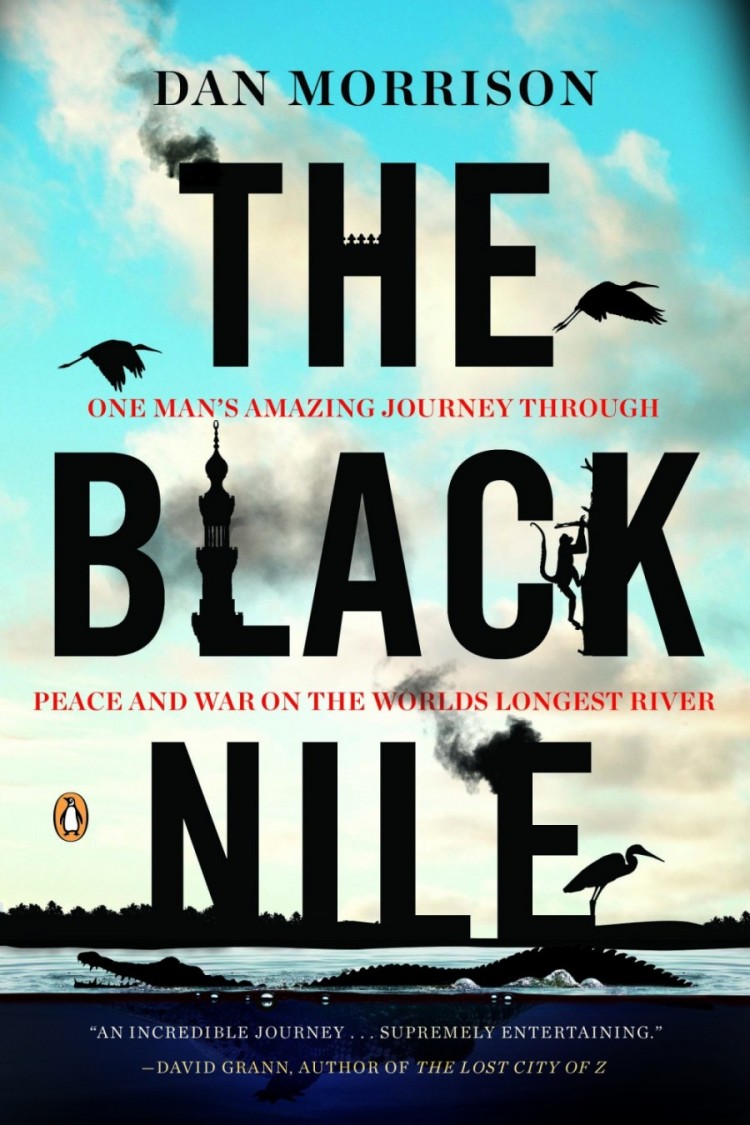“If you don’t blow your own horn, there is no music,” Jimmy Breslin, that great id of New York newspapering, said more than once (and I’ve quoted him more than once). And so: Here’s The Black Nile, profiled in The Egypt Independent. The book, “with its attention to fact and suspension of easy judgment, is the farthest kind of work from #Kony2012,” says James Purtill. And here’s The Black Nile on the summer reading list of India’s Sunday Standard magazine. And, lastly, an unexpected plug from indie publicist LuxLutus. More soon.
Praise for The Black Nile
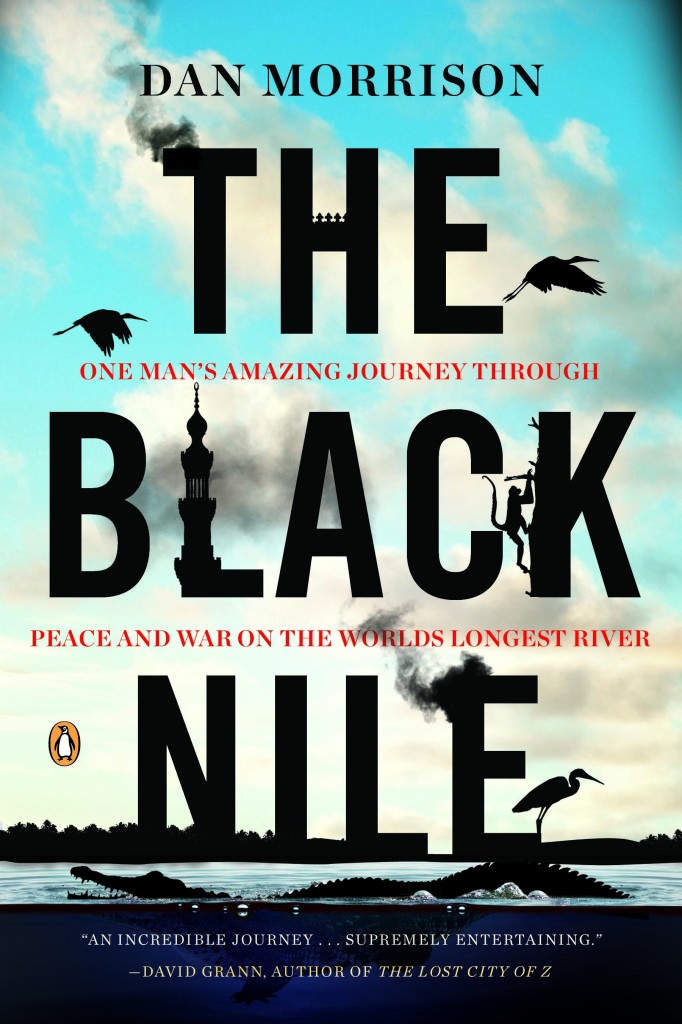 From a “nomad who pursues every form of transportation imaginable to follow Africa’s longest river,” The Black Nile is “an evocative piece of reporting…a portrait of a fractured country just one spark away from a renewal of hostilities.” –Joshua Hammer, The New York Times Sunday Book Review
From a “nomad who pursues every form of transportation imaginable to follow Africa’s longest river,” The Black Nile is “an evocative piece of reporting…a portrait of a fractured country just one spark away from a renewal of hostilities.” –Joshua Hammer, The New York Times Sunday Book Review
Beautifully written. A masterful narrative of investigative reportage, travel writing, and contemporary history. . . . The Black Nile is all at once thrilling, sad, and—most of all—thoughtful. —The Daily Beast
Dan Morrison takes the reader on an incredible journey in The Black Nile. Weaving together intense travel writing and history, he has produced a supremely entertaining work, and also an important one. —David Grann, author of The Lost City of Z
Part On the Road, part Fear and Loathing in Africa, Dan Morrison takes us with him on his journey down the Nile–teaching us, by example, to be explorers of both the world and ourselves. —Kevin Sites, author of In the Hot Zone: One Man, One Year, Twenty Wars
An Interview with the Huffington Post
Travel, literature, and a little too much gunfire: Andrew Burmon talks with Dan Morrison about The Black Nile.
Revolution on the Nile
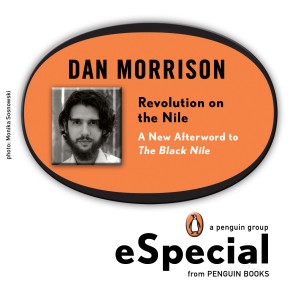 In just eight days a new country, the Republic of South Sudan, will be born. It’s a huge step – but not the last step – in a 55-years-and-counting struggle for dignity and self-determination.
In just eight days a new country, the Republic of South Sudan, will be born. It’s a huge step – but not the last step – in a 55-years-and-counting struggle for dignity and self-determination.
The south’s departure from Sudan has been as troubled as its union, with the recent fighting in Southern Kordofan and Abyei, as well as continuing insurgencies by southern renegades including George Athor and Peter Gadet. The Lord’s Resistance Army, too, remains active in the western part of the new country.
These are only the most obvious and immediate challenges faced by the southern people. Southern Sudan’s leaders, its people, and its nascent institutions will have to struggle mightily to prevent their new state from resembling the old Sudan in its approach to human rights, inclusivity, opportunity, and rule of law.
None of this should take away from the gigantic achievement that southern Independence represents. Millions died and millions more were made homeless, and endured famine, captivity and fear to get to July 9: A delicious and hugely challenging Year One. Democracy entails the right of the people and their representatives to make mistakes, to take responsibility for those errors (to “own” them, in the current parlance) and make corrections. It won’t be at all easy. But it’s a great, historic moment.
On July 5, Penguin Books will publish Revolution on the Nile, my new Afterword to The Black Nile, as an “e-special” available on the Kindle, the Nook, and Apple’s iPad, iPhone, and iTouch, as well as other e-readers. Revolution on the Nile updates The Black Nile with an account of south Sudan’s January freedom referendum, squashed attempts at public protest in northern Sudan, and the electrifying revolt against Hosni Mubarak in Egypt.
Sudan Cracks Up
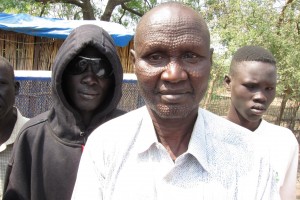 My four-day series on the coming breakup of Sudan in Slate magazine has received good notices from the likes of The Village Voice, The Browser, Bobby Ghosh of Time magazine, Microkhan, and the Wandering Savage.
My four-day series on the coming breakup of Sudan in Slate magazine has received good notices from the likes of The Village Voice, The Browser, Bobby Ghosh of Time magazine, Microkhan, and the Wandering Savage.
In case you missed the tasty 7,500-word opus, here’s a recap:
Part 1: Meet the Bernie Madoff of Sudan
Part 2: Fighting for Freedom in the New Sudan
Part 3: South Sudan: A Million Mutinies Now?
Part 4: South Sudan’s Oil Curse
Since the series began running, the insurgent militia leader Lt. General George Athor, who I quote in Part 3 of the series, has continued his private war in Jonglei state at the cost of some 300 lives. I’m posting, after the jump, notes from my January interview with Athor. I’ll reserve comment except to say the statements of this former golden boy of the Sudan People’s Liberation Army are extremely self-serving.
That’s all for now. I’m off to write a new chapter of The Black Nile to be included in the book’s upcoming Penguin paperback edition. So much has changed on the Nile this year, and so much of if for the better, that I felt the book needed an update.
Gratified in Gotham
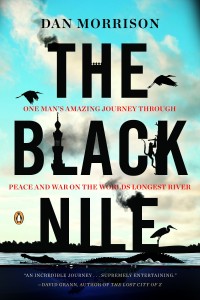 I’m very pleased that The Black Nile has been named one of the Village Voice’s Best Books of 2010, joining the likes of Patti Smith, Milan Kundera, Jennifer Egan, and The Anthology of Rap. This comes on the heels of a swell December 5 write-up by Joshua Hammer in The New York Times Sunday Book Review.
I’m very pleased that The Black Nile has been named one of the Village Voice’s Best Books of 2010, joining the likes of Patti Smith, Milan Kundera, Jennifer Egan, and The Anthology of Rap. This comes on the heels of a swell December 5 write-up by Joshua Hammer in The New York Times Sunday Book Review.
Visa officials permitting, I’ll be back in Sudan next month, covering the January 9 referendum for an obscure online journal.
Until then, Happy Holidays. (That’s The Black Nile‘s paperback cover image, by the way.)
A Glowing Review in The Washington Post
 Travel writer Tahir Shah has published a glowing review of The Black Nile in the Washington Post. It’s especially gratifying coming from an author who knows first-hand the joys, burrs, and dangers of off-the-grid travel and reporting. Here’s an excerpt:
Travel writer Tahir Shah has published a glowing review of The Black Nile in the Washington Post. It’s especially gratifying coming from an author who knows first-hand the joys, burrs, and dangers of off-the-grid travel and reporting. Here’s an excerpt:
Morrison’s experience as a journalist shines through, as does his use of humor, which frames subjects of utter horror. These include intertribal conflict, pestilence, and the dams and deforestation that have destroyed swaths of East Africa’s ancient habitat. In the southern Sudanese town of Juba, Schon cooked up his last plates of oily spaghetti and came clean about not wanting to go on, especially since “on” was into the “malarial tinderbox” of the Sudd swampland, where “the war wasn’t quite finished in Upper Nile state — antagonistic militias stewed in camps while their leaders grappled for political power.” After his childhood buddy leaves, Morrison continues alone, and, now that the author can turn his full attention to the landscape around him, the travelogue steps up a notch. What’s impressive is how well he describes without judging. The Africa he depicts is a place where tribal rivalry complements religious and political friction; where illness, disease and utter poverty shape the lives of the majority, who lack the safety nets that so often catch Westerners when we fall.
As the journey progresses, it becomes much less of a whimsical jaunt and much more of a hard-edged report. This is Morrison at his best, lean and hungry in wild wastelands of Africa’s Sahel. His description of the Sudanese capital is memorable : “A dense static of orange grit came screaming from the desert; it filled the sky and trapped Khartoum’s eight million souls in a suffocating and radiant silica heat.”
Click here to buy your copy of The Black Nile.
And check out Tahir Shah’s most recent new book, In Arabian Nights: A Caravan of Moroccan Dreams.
Lonely Planet Gives ‘The Black Nile’ 4.5 Stars
 Travel guide author Steve Waters, writing at the Lonely Planet website, has this to say:
Travel guide author Steve Waters, writing at the Lonely Planet website, has this to say:
The Black Nile offers a fascinating and harrowing look at a country that continually makes headlines for all the wrong reasons. Morrison does his best to explain the historical events, tribal intricacies, external pressures and internal tensions that haunt Sudan today. Ok, not every traveller can flash their press card and jump a UN chopper, but then they normally wouldn’t end up under the bed sheltering from a firefight between local militias either. Morrison’s trip through Sudan becomes a quest for understanding; an attempt to unearth the truth behind his experiences as he interviews rebel leaders and local headmen, academics and taxi drivers, archaeologists and tour guides, all the time cadging his way a little further downstream.
The One-Eyed Hunter & the Albino Fishing Cat
 The forests of Bangladesh are dwindling by the day, creating a furry refugee crisis among forest-dwelling animals who are forced into towns and villages in search of food.
The forests of Bangladesh are dwindling by the day, creating a furry refugee crisis among forest-dwelling animals who are forced into towns and villages in search of food.
That’s where Sitesh Ranjan Deb comes in. The subject of my most recent piece for Nat Geo News Watch, Sitesh is a one man International Rescue Committee waging a lonely battle to save the animals of his native land. I think you’ll enjoy this tale of a gunman turned conservationist.
(Looking for news of The Black Nile? Check out this review by Issandr el Amrani in The National, and this exclusive excerpt from The Faster Times. )
The LA Times calls The Black Nile “a memorable romp.”
 “Morrison is an agreeable raconteur, and he’s skilled at conjuring the menacing disorder of a continent dump-trucked in the Class VI whitewater of post-colonial commerce . . . The cumulative near-misses, the chronic money shortage and the moving stories have a huge impact by the time Morrison reaches Rosetta in Egypt . . . A memorable romp.”
“Morrison is an agreeable raconteur, and he’s skilled at conjuring the menacing disorder of a continent dump-trucked in the Class VI whitewater of post-colonial commerce . . . The cumulative near-misses, the chronic money shortage and the moving stories have a huge impact by the time Morrison reaches Rosetta in Egypt . . . A memorable romp.”

